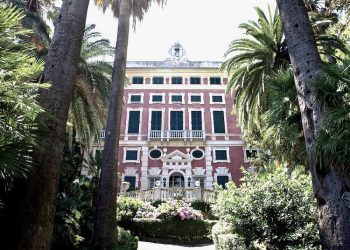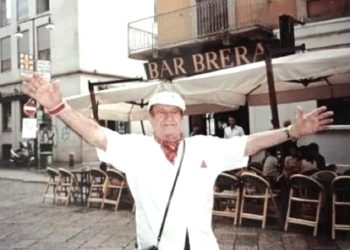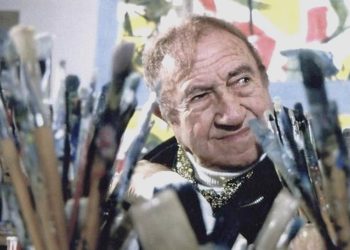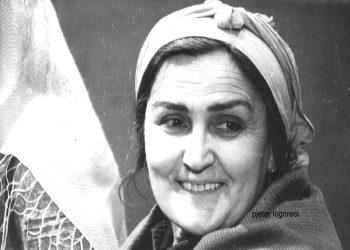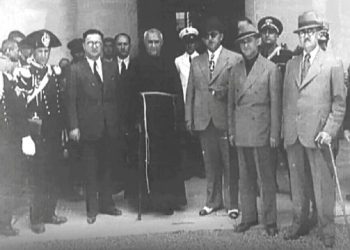By Shpend Topollaj
– A study of great scientific value by Vilhelme Vranari –
Memorie.al / The study book “Autochthony of southern Albania, the enigma of centuries”, published by the Publishing House “Europrint” sh.p.k. Vlorë is perhaps the most brilliant crown of the respected author Vilhelme Vranari Haxhiraj. Started as early as 1974 and completed after a long hiatus, this book is given to the reader right now, at a time when, more than ever, its theme has come up on the agenda in relations with our neighbors. If those great injustices had not been done to our country, and if their tyranny had not increased even more with demands as absurd as they were shameless, it is likely that not Vilhelmja, but no one would have spent so much time on it proven unnecessary; so that we are the oldest people of the peninsula, not to go further.
Likewise, no one would tire of finding facts and justifications that it is others who have found us in these lands, since even what has been said, even by honorable and impartial foreigners, has been more than enough for him convince anyone. But when you see that the malicious politicians around us, mainly from Orthodox countries, are being greedy in their goals and contemptuous of us, that is, when from Montenegro, as if Plava and Gucia were not enough, another eighty square kilometers of Kosovo are diplomatically kidnapped , when the Serbian aggressor not only holds those known provinces, but also wants to lay hands on Mitrovica and Trepce, priceless assets (without talking about recognition and union with Albania), when the government of North Macedonia is reluctant to give their rights to the Albanians according to the signed agreements, and when the Greeks practice anti-Albanianism and promote the idea of Northern Epirus, asserting that the Cham issue does not exist, then why should our intellectual forces remain silent?
What’s more, they should raise their voice of reason, when they see that in Albania, neither that who lead, nor the Foreign Ministry, nor the Assembly, nor the Academy of Sciences, feel the same. And here comes this woman from Vlonia, this courageous historian, this writer appreciated everywhere, inside and outside the country, who disagrees with the lies of certain anti-Albanian circles, often even of some pseudo-academics, reminds us of the advice of the wise Lucian that “history… does not tolerate any lies, even random and insignificant lies”. But apparently, some Greek historians have forgotten his advice on how history should be written, even though he, who came from Semset in Syria, lived in Athens for fifteen years (165 – 180 AD), where not only he gave lectures, but he was also noted for his sarcasm towards servile historians. And the bad thing is that Vilhelmja does not spare the stigma even for the submission that we as a whole have towards foreigners.
She is outraged and judges that: “Thus, the Albanians, by shifting the gravitation of hospitality and respect to foreigners to the point of servility, over the centuries have created a significant void for the conception of unity within themselves, which has created the ground for the tragic division that has characterized them from generation to generation”. And here we are; more than 76 years have passed since the liberation of the homeland and the same hatred continues; Communists and Ballistas. And when we don’t find the language with each other, then how will we join our voice to give the right answer to foreign bad intentions?
Hasn’t the time come for us Albanians to be defenders of our interests first? We have all the qualities as a people to be proud of. We have something to brag about during our existence of thousands and thousands of years. We suffered invasions from the imperial army, but not only did we resist with honor, but we also produced as many Emperors, Prime Ministers, Popes, saints, statesmen, strategists, scientists, writers, artists, etc. etc. And always, preserving the customs, customs, traditions and respect and helping the neighbors, whenever they needed.
They, on the contrary, with the bridge of fire, with murder, with mass penetrations, with discrimination. Here, Vilhemja lists these in this book. She does not show contempt for others, she does not denigrate, not denying the Greeks in this case the values they have, without forgetting to tell them where they come from and when they came to the lands of our ancestors, the Pelasgians. It shows artifacts, archaeological finds, the analysis of old writings, the conclusions of ancient historians and analyzes not only literary creations, but also mythology itself.
The latter is not so easy, since no one has managed to exactly separate the myth from the history. Besides, I know very well that they were woven in such a way to serve an evil purpose. But she also knew how to clarify the connections with the myths and culture of our ancestors. He even concludes that their source was mostly there. In everything that this author says, there are correct and undeniable findings from prominent figures of the world, from those who have given Albania its rightful place in the community of other peoples.
Vilhelmja, without haste, has collected an irrefutable bibliography. She also reminds us that these men and women who have done so much for us should be appreciated in life, but at the same time, she does not hesitate to argue intelligently with all those who have unintentionally been wrong in what they have written. . After a persistent work, she managed to find and put in the book, maps up to Greek coins. There are some universally accepted sayings that speak of our antiquity. Herodotus himself said that: “Before we came to these lands where we are today, the Pelasgians were here.”
And there was no way it could happen otherwise; these lands so favorable for living; with climate, land, forests, rivers and seas that would have been inhabited by others, much more ancient than those who were originally called Danai (Laokoonti has a lapidary sentence: “Timeo danaos et dona ferentes”). So they had come from Afro-Asian countries. The author pays special attention to our language, for which Pliny the Elder says that: “The Romans took the alphabet from the Illyrians”, while A. Lamberti, with his serious studies, proved that “Albanian is the oldest Indo-European language”. Likewise, Leibniz had decided that: “The Albanian language is the language of the ancient Illyrians”, so much so that he recommended that “if you want to discover History before Christ and other sciences, study the Albanian language!”
Vilhelme Vranari very well gives us many examples from etymology, where the influence of our language on other peoples is very clear. She also opposes Albanian authors when they are wrong in their conclusions, not to mention that she also opposes the Italian encyclopedia Treccani itself, which is quite tendentious, writing irresponsibly and opposing Illyrian autochthony. Just as he greets the works of Domenico Mystilli, the Italian archaeologist who, being on a mission in Albania, shows his scientific conviction, rejecting the Greek claims about Epirus that: “it was Greek land and was inhabited by Greeks”.
Even Virgil wrote in “Aeneid” that: “It is said that the first inhabitants of our Italy were the Pelasgians”. And perhaps, the one who exhausts this issue is Stipçeviçi who said: “Put an end to the debates on autochthony which, according to all data, belongs to the Albanians”. When you read this book, which is nothing more than a call to wake up from slumber, you understand that we are facing a task that is as responsible as it is colossal, something for which this girl, the daughter of a noble family, with the courage and love for the Motherland, will line up with other prominent women such as Dora d’Istria, Nermin Vlora, Eleni Kocaqi, etc., because it is as the honorable Mujë Buçpapaj says: “No other writer banned by the communist regime has able to impose himself with such human and literary dignity as Vilhelme Haxhiraj”, but I would also add historical and political dignity. Memorie.al




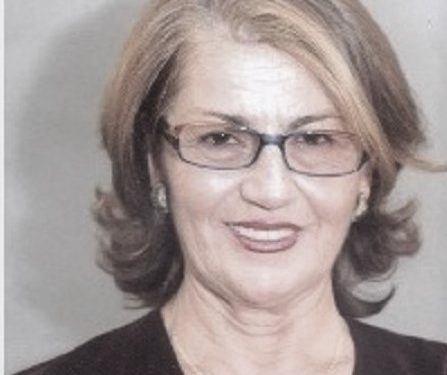
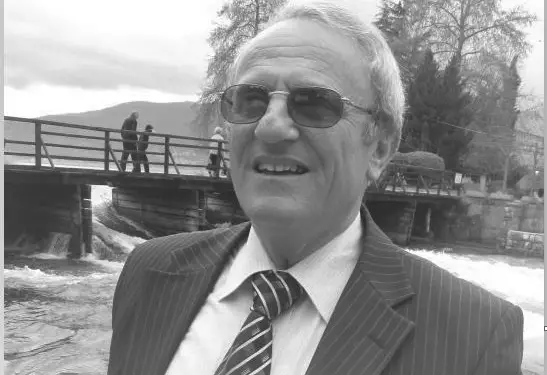
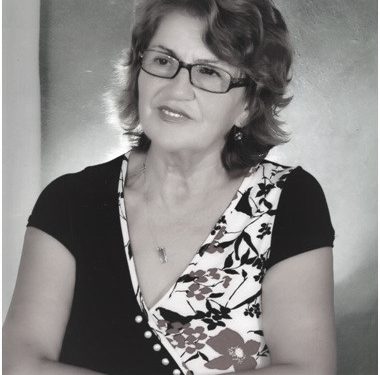
![“Count Durazzo and Mozart discussed this piece, as a few years prior he had attempted to stage it in the Theaters of Vienna; he even [discussed it] with Rousseau…” / The unknown history of the famous Durazzo family.](https://memorie.al/wp-content/uploads/2026/02/collagemozart_Durazzo-2-350x250.jpg)
